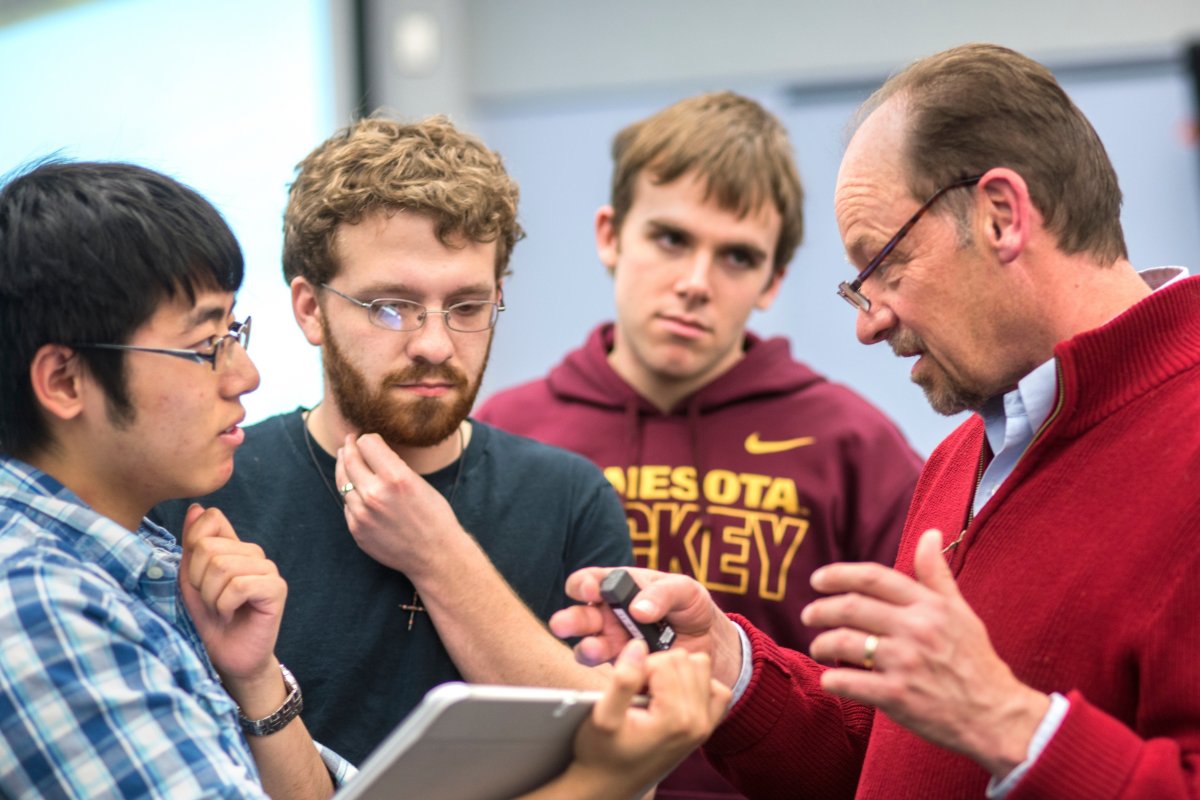Our Undergraduate Programs
Electrical and computer engineers provide the key building blocks of a wide variety of industries, from information technology to software engineering, from power and energy systems to biomedical engineering. Committed to excellence in undergraduate and graduate education and research, our world class faculty guide students as they explore subjects such as circuit design, controls, digital design, signal processing, optics, robotics, renewable energy, and communication.
ECE offers two undergraduate degrees: Bachelor of Electrical Engineering (BEE degree), and Bachelor of Computer Engineering (BCompE). Both degrees are accredited by the Engineering Accreditation Commission of ABET. The department also offers an integrated degree program, which allow students to complete both a bachelor's and master's degree in 5 years.
ELECTRICAL ENGINEERING
The electrical engineering major prepares you to anticipate and address tomorrow's challenges, and innovate and create technologies that affect a multitude of facets of modern day living. You will build power generation and distribution systems, and develop circuits that power cell phones, computers, and game consoles. You will design electric cars, and invent electromagnetic devices such as MRI machines and bio-sensors to detect disease. You will discover new methods of clean energy production. You will introduce radical improvements to existing technologies that make our lives easier, be it healthcare, internet security, automation, communication, renewables, or anything in between.
AREAS OF EMPHASIS
After you gain a strong foundation in math, chemistry, physics, and computer science, our expert faculty will guide you through learning about circuit design, controls, digital design, and communication. You can choose among seven emphasis areas that include:
- Biomedical systems and devices
- Signal processing and communications
- Energy systems and renewables
- Control systems
- Magnetics and optics
Our students have access to a wide network of resources, and they are encouraged to pursue research and innovation within electrical and computer engineering, as well as cross borders and engage in interdisciplinary research. Our faculty are experts in wind energy, smart grid technology, nanotechnology, medical devices, wireless communications, VLSI, computer systems, sensors, and magnetic materials.
COMPUTER ENGINEERING
The computer engineering major prepares you to be well-versed with hardware and software and use that knowledge to design solutions for problems that are and yet to be. You will work on semiconductor design, operating systems, and design state-of-art computer systems. You will build secure networks, and develop machine learning systems and devices that rely on artificial intelligence. You will design secure communication systems, and software that improve healthcare and increase efficiency in business. You will create new products and envision improvements to existing ones that affect our lives in myriad ways, from space technology to internet search, from transportation automation to disease alleviation.
AREAS OF EMPHASIS
After students gain a strong foundation in math, physics, and computer science, our expert faculty guide them as they learn about circuit design, digital design, computer architecture, data structures, and operating systems. Students can choose among seven emphasis areas that include:
- VLSI and CAD
- Robotics and embedded system design
- Graphics, virtual reality, and user interface design
- Computer architecture and parallel programming
- Artificial intelligence and machine learning
